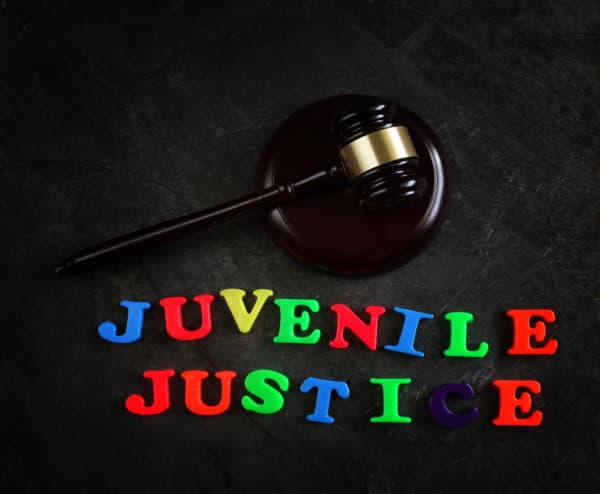
San Diego County Juvenile Crime Defense Attorney
Is Your Teen Facing Criminal Charges? Call 24/7 to Start Building Their Defense
If you or a minor you care for has been charged with a crime, Vista and San Diego juvenile crime lawyer Peter M. Liss (State Bar #111128) can help. He has defended hundreds of juveniles (minors under 18) who have been arrested and charged with criminal offenses. Some of the most common juvenile crimes in San Diego County are:
- Underage DUI, including DUI with accident, drug DUIs, and bike DUIs
- Property destruction, including arson, vehicle tampering, throwing objects at cars, and vandalism
- Driving offenses, including reckless driving, hit and run, and driving without a license
- Drug crimes, including drug sales, transportation, and possession
- Gang crimes, including drive-by shootings and carjacking
- Sex crimes, including sexual assault, child molestation, and child pornography
- Status offenses, including alcohol possession, marijuana possession, and truancy
- Theft, including shoplifting, burglary, robbery, and joyriding
- Violent crimes, including assault, battery, bullying, and weapons charges
- Cyber crimes, including hacking, doxing, and swatting
Parents and grandparents often retain Mr. Liss to represent a dependent charged with committing a crime in San Diego County. If you need a juvenile defense attorney, please call Peter Liss today to start protecting your child’s future.
Fight for your child’s freedom without draining your wallet. Schedule a free consultation today!
What Happens if My Child is Arrested in San Diego?
Criminal charges against minors are handled in a drastically different manner from charges against adults.1 For example, there is no bail in juvenile courts, although children may be released to their parents in many cases. Additionally, minors do not have the right to trial by jury but instead are convicted and sentenced exclusively by the judge hearing the case.
Juvenile Defendants Have the Right to a Lawyer
Always work with someone experienced in these specialized cases. Hiring a skilled San Diego juvenile defense attorney is one of the most important things you can do to help your child after their arrest.

How the Juvenile Legal System Works in San Diego
Minors are tried in the California juvenile court system. The police may pick up juveniles either for “juvenile delinquency” (committing a crime)2 or a “status offense” (minor age-related offenses such as truancy or minor in possession charges)3.
Only individuals over 12 can face criminal charges.4 While there are many courthouses in San Diego County, the only juvenile court in this jurisdiction is next to the juvenile detention facility near the interchange between the 805 and 163 highways.
The Juvenile court system has six steps: 5
- The filing of the petition
- Intake
- The detention hearing
- The transfer hearing (if applicable)
- Adjudication
- The disposition hearing
Filing of the Petition
The filing of the petition is simply the juvenile equivalent of filing charges against an adult offender. The petition may request that the juvenile be charged in adult or juvenile court.

Intake
The intake process starts when the court receives the petition from the District Attorney. The court will request that the probation department prepare an initial report on the defendant.
In juvenile court, the warrant process is typically limited to juveniles who violate the terms of their probation or fail to appear in court. Instead, parents will receive a notice to appear if the child is not already in custody.
At the time of arrest or intake meeting, an intake officer (a juvenile probation officer) summarizes the police report, the juvenile’s school and criminal records, and the parents’ comments on the child’s well-being. There are four possible outcomes during these meetings:6
- The child is released without further consequences
- The child can participate in a voluntary program rather than being sent to court
- The child is released, but the charges are sent to the District Attorney
- The child is kept in custody, and the charges are sent to the District Attorney
“Most minors are released to their parents, even if charges are filed,” explains Liss. However, some youths are detained because they don’t have a stable residence or have been accused of a more serious offense.
The Detention Hearing
The detention hearing is the juvenile equivalent of an arraignment. If a minor is placed in custody, the District Attorney has 48 hours (excluding non-court days) to hold a detention hearing. If the hearing is not held within 48 hours, the minor must be released into the custody of their guardian. If the child is not in custody, the DA has 15 court days to schedule a hearing.7
The judge will decide whether they will be placed into parental custody or kept in the juvenile detention facility. The judge will base this decision on the report presented by the probation department, the defendant’s background and behavior, and the severity of the charges.
Minors kept detained in San Diego are held in one of two locations: the Youth Transition Campus, next to the Juvenile Court, or the East Mesa Juvenile Detention Facility, near the Mexican border. They are not placed in county jails with adults.
A San Diego juvenile defense lawyer can play a crucial role in helping a teen get released from custody. Start working on this process as soon as possible, as just being detained can have a devastating impact on a young person’s mental state.7
Transfer Hearing
If a child over 16 commits a grave offense, such as rape, murder, arson, or kidnapping, the court will hold a “transfer hearing” to decide whether the child should be tried in the juvenile or adult criminal court system.
In most situations, juvenile defense lawyers work to ensure their clients’ cases are handled in the San Diego juvenile courts, as sentencing generally is less severe for minors. “I always try to keep these matters out of adult courts,” says Liss, adding, “This is particularly important for those charged with sex crimes because teens who receive probation for sex crimes are not required to register as a sex offender.”
Adjudication

The adjudication process is the resolution of the defendant’s case. It can involve a plea bargain or a hearing with a judge. While minors do not receive jury trials, they can still defend themselves against the charges with a skilled San Diego juvenile crimes lawyer.
Disposition Hearing
If the judge decides that a minor is guilty of a crime, they will schedule a disposition hearing, which is similar to a sentencing hearing in adult court. At this hearing, the prosecution and criminal defense attorney will present arguments regarding what they believe would be the most appropriate sentence for the juvenile.
The ultimate goal of the juvenile justice system is to rehabilitate minors, not punish them. The judge will consider what they believe is the most appropriate way to teach the teen a lesson and remedy any wrongs incurred by the victim.
When Should You Hire an Attorney?
A juvenile defense lawyer can begin helping your child at any stage during this process. Still, it is typically best to obtain legal counsel as soon as possible to help protect your child’s rights.
What Rights Do Juvenile Offenders in Vista Have?
While the police must still read a minor their Miranda rights when making an arrest, minors have slightly different rights than adults accused of crimes. Here’s how:
- A child’s parent must be notified when they are arrested or transported for questioning9
- Juveniles must have an attorney present for questioning once placed in custody
- Police cannot use threats, deception, or psychologically manipulative tactics while questioning minors9
- Incarcerated juveniles cannot post bail
- Minors do not have a right to trial by jury
Like an adult, a juvenile still has a right to silence, whether or not they are under police custody.
Minors are also protected from police searches on and off school grounds. Officers and school officials can search a minor’s property on school grounds if they have a reasonable suspicion of criminal activity. Police must have probable cause or consent to search a teenager’s vehicle, pockets, or bag. To search a juvenile’s home, a warrant or consent is required.

Watch for Violations of Your Child’s Rights
When a juvenile’s rights were violated, it is serious. If they were subjected to an illegal search, arrest, interrogation method, or any other rights violation, any resulting evidence may be withheld from the adjudication hearing. In some cases, this may be sufficient to result in the case being dropped altogether.
Sentences for Juvenile Offenders in San Diego Courts

Juvenile offenders face many of the same penalties as adult offenders. However, the juvenile system aims to rehabilitate, not punish. Juveniles can still face maximum sentences, and even misdemeanors can mean up to a year in detention.
Maximum Penalties for Juvenile Offenders
The potential penalties can be severe, depending on the charges in question and the child’s age:
- A minor under age 16 can be incarcerated until age 21
- A minor over 16 can be incarcerated until age 25 if charged as a juvenile
- A minor charged as an adult can be sentenced up to life imprisonment, but cannot be sentenced to death
If someone over 16 is tried in adult court, they will still be held in a juvenile facility until they turn 18. At that point, they will be transferred to an adult jail or prison.
“In many cases, I can help ensure my clients are sentenced to probation rather than detention,” says Liss.
Diversion Programs Allow for a Clean Criminal Record

One of the most beneficial outcomes in a juvenile case is a diversion program. These alternative sentences allow for the deferred sentencing of the child if they agree to a behavior contract that includes activities such as counseling, outreach programs, community service, “scared straight” programs, and house arrest.10 As long as the program is fully completed, the charge will not appear on a person’s criminal record.
Avoiding an offense on a teen’s record is very beneficial for offenders just starting their lives, particularly since many financial aid programs are unavailable to those with certain criminal offenses on their record.
Out-of-Home Placement
Judges may also may avoid sending a minor to a juvenile detention center by ordering out-of-home placement at a group home, residential facility, training school, or foster home. An example is San Diego’s Cool Bed Program. This option is most commonly used in situations where the judge believes the child’s home life is too unstable.
Unique Driver’s License Penalties for Minors
Teens are sometimes subjected to specialized penalties, including driver’s license suspensions or the delayed ability to obtain a driver’s license. Judges can implement these penalties for most juvenile offenses, though they are rarely mandatory outside of DUI cases.
Peter Liss has found that judges in San Diego are more likely to include these penalties in cases involving motor vehicles, such as joyriding and driving without a license, or offenses related to drug or alcohol use. “In many cases, your juvenile criminal defense attorney may be able to convince the judge not to apply them in a particular case,” explains Liss.
Under the state’s zero tolerance law, a teen can lose their ability to drive if caught with a BAC over 0.01% alcohol in their system while driving, so even drinking kombucha or NyQuil can put them above this limit.11
Your Juvenile Attorney Matters
Obtain a skilled juvenile court lawyer as soon as possible to obtain the best results under the particular facts of your child’s case.
What Defenses Are Used in Juvenile Court?
Every criminal case is different. Your child’s defense will be based on the exact circumstances of the crime, their background, and more. “The most important thing to consider with a juvenile case is that the child’s attorney is there to advocate for their client’s best interest, not their parents,” says Liss.
Your child’s juvenile defense lawyer may use any of the following strategies to reduce their potential sentence or dismiss the petition:
- Present evidence to back up the defendant’s claims (for example, proving an alibi to show a teen wasn’t at the location of the crime)
- Challenge the prosecution’s evidence or lack of evidence
- Show the elements of the criminal charge were not met (for example, a theft defense could include showing that the teen never attempted to leave the store with the merchandise and, therefore, did not shoplift)
- Establish that the teen is a good kid who made a mistake
- Argue that the juvenile has had a rough hand in life and just needs guidance and a second chance
- Show that there were mitigating circumstances to excuse the illegal activity (for example, driving recklessly to take an injured friend to the hospital)
- Challenge the idea that the defendant was aware of the crime (for example, a defense attorney could argue that a juvenile accused of drug possession did not know a friend put a bag of drugs in their glove box)
- Argue that because the juvenile’s rights were violated, the evidence should be suppressed or the petition dismissed (for example, if the police used manipulative tactics to secure a confession while interviewing a minor without an attorney)

Juvenile Record Sealing
Juvenile court determinations are not convictions but are called a “true finding.”12 A true finding and record of the detention and arrest can be sealed upon the completion of juvenile probation or a diversion program. You do not need a lawyer to file a motion to seal these cases.13
When A Juvenile Court Attorney is Required to Seal Records
If a juvenile is not sentenced to probation or fails to complete the terms of their probation or diversion program, their record can be sealed at 18. This process is not automatic and does require a motion to be filed. There are some limited circumstances where a record cannot be sealed, including cases where the minor was found guilty of a violent crime or some sex offenses.
What Does it Mean to Have a Record Sealed?
Sealing the record means the offense will not appear on background checks and cannot be used against the individual when seeking employment or housing. There are only limited circumstances where a sealed record can be viewed, and the physical records will eventually be destroyed.

Frequently Asked Questions About Juvenile Crime Charges in Vista and San Diego, CA
Are Juveniles Required to Register as Sex Offenders?
Not always. Not all sex offenses require registration, and only offenders over 14 are subject to registration. Additionally, anyone who has been tried in juvenile court and sentenced to probation is exempt from sex offender registration. Juvenile court defendants who are not granted probation are required to register for a minimum of 5 to 10 years after they are released from custody. Juveniles tried as adults are subject to the same rules as adult sex offenders; however, their information will not be listed on the public Megan’s Law website until they turn 18.
Can Minors Under 12 Face Criminal Charges in California?
Children under 12 cannot be processed through the juvenile justice system. Instead, parents and schools are primarily responsible for addressing the majority of behavioral issues exhibited by children this age. In more serious situations, community-based organizations, behavioral health organizations, and child welfare systems may become involved.
Can Minors be Questioned Without Their Parents’ Consent?
Officers often informally question juveniles at school because they can legally do so without the parent’s knowledge or consent. By questioning a teen without arresting them, the police can also bypass the need to provide a minor with an attorney or reading them their Miranda rights. Minors can invoke their right to silence in these situations and ask to speak with their parents or an attorney.
Can Charges Against Minors be Dropped or Diverted?
Yes. Just like an adult defendant, juveniles can have their charges reduced, dropped, or diverted in many cases.
Legal References
- Navigating the Juvenile Court System (San Diego County District Attorney) ↩︎
- Juvenile Justice (Delinquency) (Superior Court of California, County of San Diego) ↩︎
- Juvenile Minor Offense (Superior Court of California, County of San Diego) ↩︎
- Juvenile Procedures (San Diego Police Department) ↩︎
- Juvenile Justice Court Process (California Courts) ↩︎
- If a Youth is Arrested (California Courts) ↩︎
- Types of Hearings (San Diego Health and Human Services Agency) ↩︎
- The Dangers of Detention (Justice Policy Institute) ↩︎
- Recommendations on Police Interrogation of Youth (Youth Law Center) ↩︎
- New Law Prohibiting the Use of Certain Techniques When Interrogating Minors in Custody (California Department of Justice) ↩︎
- Diversion Programs (Youth.gov) ↩︎
- Driving Under the Influence (California DMV) ↩︎
- Juvenile Case Process (San Diego Office of the Public Defender) ↩︎
- Guide to Sealing Juvenile Court Records (California Courts) ↩︎













